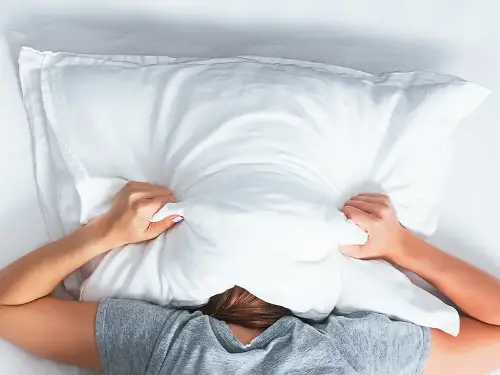How much does a lack of sleep really affect you? Here, DR VALERIE DRUON of Osler Health shares her insights on sleep deprivation – plus how to sleep better!
Sleep is incredibly complex and impacts virtually every system in the body. Multiple parts of the brain are involved in producing hormones and chemicals that regulate sleep and wakefulness. The quality of our shut-eye has a lasting impact on health.

Sleep: a key pillar of lifestyle medicine
At Osler Health International, we practice primary care using the principles of lifestyle medicine. It promotes the idea that the choices we make every day – not just how much shut-eye we get, but also what we eat, how active we are and how we manage stress – directly influence our health and wellbeing. By making positive changes to these habits, we can improve health outcomes and lower the risk of chronic conditions in the future.
Sleep is fundamental. How can you exercise if you’ve barely slept? How do you deal with a stressful situation on no rest? Beyond that, sleep deprivation has far-reaching effects on your health. Studies show that ongoing sleep deprivation can:
- Increase your risk of colorectal cancer (up to 36 percent)
- Impact your immunity
- Increase your risk of type 2 diabetes
- Increase your risk of developing heart disease
- Increase your risk of high blood pressure
- Increase your risk of obesity (up to 50 percent)
- Lower your levels of appetite control
- Increase your risk of dementia (up to 33 percent)
Sleep deprivation’s link to mental health
Insomnia impairs cognitive functions like memory, attention and decision-making, making it harder to cope with daily challenges and emotions. Poor sleep also disrupts emotional regulation, increasing stress reactivity and causing mood swings. Chronic insomnia raises the risk of anxiety, depression and other disorders and worsens symptoms in those already affected.
Treating insomnia and mental health issues together is crucial for improving overall wellbeing. Addressing sleep disturbances often leads to improvements in mood, anxiety levels and cognitive functioning.
The facts are stark. When patients tell me that they regularly don’t sleep well, I focus on implementing good sleep habits and hygiene as a starting block. “Restorative” shut-eye is your bedrock!

How much is enough?
Our sleep needs change as we age; it’s recommended that school-age children (6-12 years) get 9 to 12 hours, teenagers 8 to 10 hours, and adults 7 to 9 hours.
How to sleep better and prevent sleep deprivation
#1 What you do during the day affects the quality of your sleep
- Morning: Eat breakfast by a window or outdoors (sunlight helps reset your circadian clock) and wake up at the same time each day, including weekends.
- Afternoon: Exercise at least three hours before bed and cutting caffeine out by noon sometimes helps.
- Evening: Turn off technology 30 minutes before bed, use dim lighting, have a warm (not hot) shower or bath, cool your bedroom and stick to a consistent bedtime.
#2 Manage your stress
Stress can be managed through exercise, stress management techniques or Cognitive Behavioural Therapy. I like to understand my patients’ stressors and discuss ways of managing them as a way of feeling more in control.
#3 Rule out medical causes
A doctor can help eliminate medical reasons that may be causing sleep deprivation. These may include mental health conditions like depression and anxiety, chronic pain, as well as conditions like heart disease or diabetes and certain medications.
About the doctor
Dr Valerie Druon is a family physician with over 10 years of practice, and one of the few doctors in Singapore certified by the International Board of Lifestyle Medicine. She’s based at Osler Health’s Star Vista clinic.
• #02-27 & #02-34 Raffles Hotel Arcade, 328 North Bridge Road | 6332 2727
• #B1-27, The Star Vista, 1 Vista Exchange Green | 6339 2727
osler-health.com
